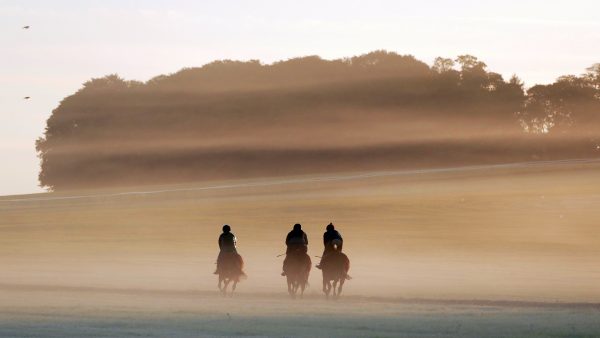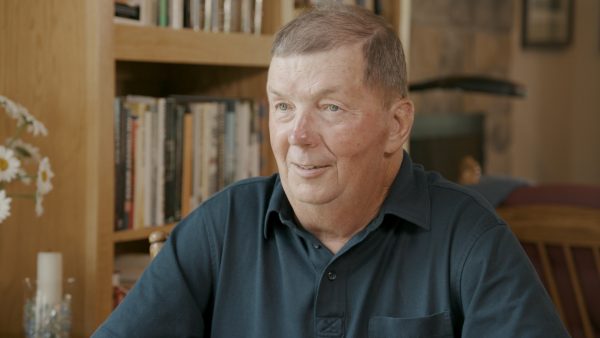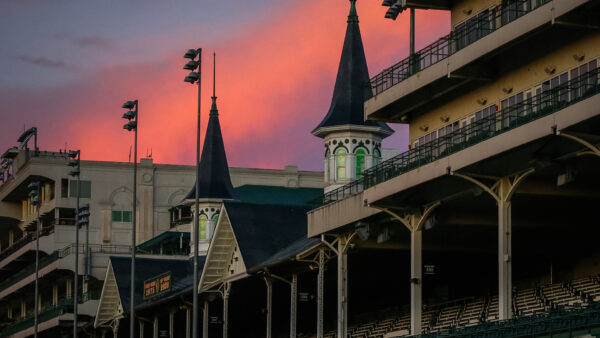by Sue Finley
Photos (unless indicated) by Paul Flanagan
(Click the arrow above to play the podcast.)
I have always loved old churches–the kinds you come across in rural towns in Europe where the stone steps are worn with the footsteps of time, where you sit in the pews and imagine the centuries of souls who sat there before you celebrating their joys, mourning their losses, and passing time in the quiet contemplation of life. More than any other place, they seem, to me, to be the places where history is housed.
I had cause to think of this recently as I sat in the the Pieve di Corsignano, the 12th century Romanesque stone church where Pope Pius II was baptized. Parts of it date back to the 800s, before Pius would develop the town up the hill from the church into what we know as Pienza today, and name it after himself. It is now the oldest existing planned city in the world, and one of the most beautiful places you will ever visit.
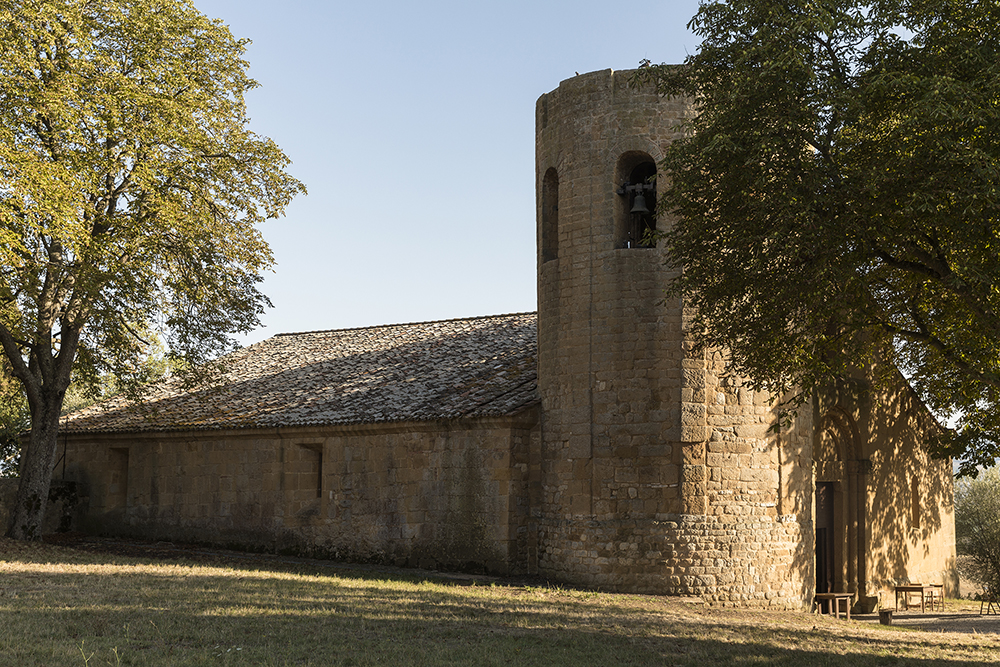
On this day, the church is not quiet; in fact, it is filled with the sorts of sounds you might have heard there those many centuries ago; the sounds of chamber music, violins, string ensembles, and even dueling cellos, with some of the most talented musicians in the world.
The experience of sitting in this semi-darkened church overlooking the Val d’Orcia, one of Italy’s most beautiful vistas, with just around 200 other people and listening to this music is so profound, and such a rare chance to focus in today’s world full of distractions, that leads me to start thinking about all of the things I value and enjoy in life. Travel, certainly, and history. Family, tradition, art, great food and fine wine, friendship, landscape, scenery and beauty. And now, music.
And so it occurs to me soon after that Antonio Lysy, a cellist and professor at UCLA who grew up a stone’s throw from this place where we sit today, has taken all of these things that we value in life and has managed to stir all them together in a pot and create one experience that combines so many elements of beauty that I struggle to write about it for fear of not doing it justice. That experience is the Incontri in Terra di Siena (ITS), a music festival that is, at its heart, about the best that life has to offer.
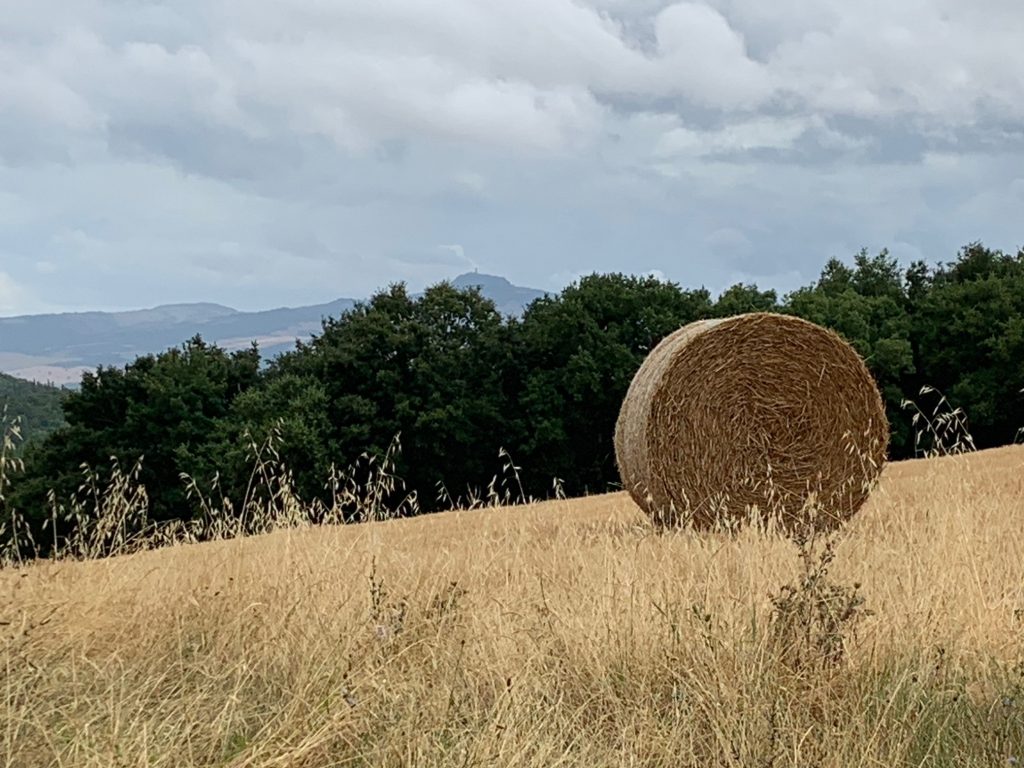
A disclaimer: I’m not a music person. Not that I don’t like music; I do. But I have never played an instrument, or had a favorite composer and until July, I had been to exactly one classical concert in my life, an outdoor recital by the Denver Symphony Orchestra when I was a child. It was magical, but I never went back. The Incontri in Terra di Siena, `Meetings in the Land of Siena,’ a classical music festival which celebrated its 31st rendition this year, now has me wondering why.
This year’s festival is comprised of eight concerts that take place over nine days in different locations in the Siena province; most indoors, but some out. There are also book presentations and historical talks related to the area, and it is for the latter that I am present here.
The ITS continues to be a place for artistic encounter and inspires us to make our humble contribution for a better and more humane world.” –Radovan Vlatkovic
The festival is not solely about the history of its home, La Foce, or about its founder, Antonio Lysy, but it would be remiss not to understand them in this context and as the main backdrop.
La Foce was once a 7,500-acre estate, now about one-third that size, in central Italy where 58 farming families once lived and worked, farming the land under the guidance of its owners, Iris and Antonio Origo, Lysy’s grandparents. Origo is a celebrated literary figure who documented the changes she and her husband brought to the area, including hospitals, schools, literacy, modern farming techniques; in short, better lives. She also documented the intrusion of World War II into their world in a celebrated diary, War in Val d’Orcia, in which she described how the family struggled to keep the farm going, all while providing aid and sheltering displaced children and members of the Allied forces, including escaped POWs. I know from personal experience that there is no revisionist history here; my father was one of those she saved.
That’s La Foce’s past. Today, still managed by the Origo family, it draws a steady stream of visitors from around the world who come to stay in its farmhouses, B&B and villa apartments. Many, having read Origos’ books, come to experience a place where such profound history occurred. Some come to get married in the iconic English garden. Others come for the music.
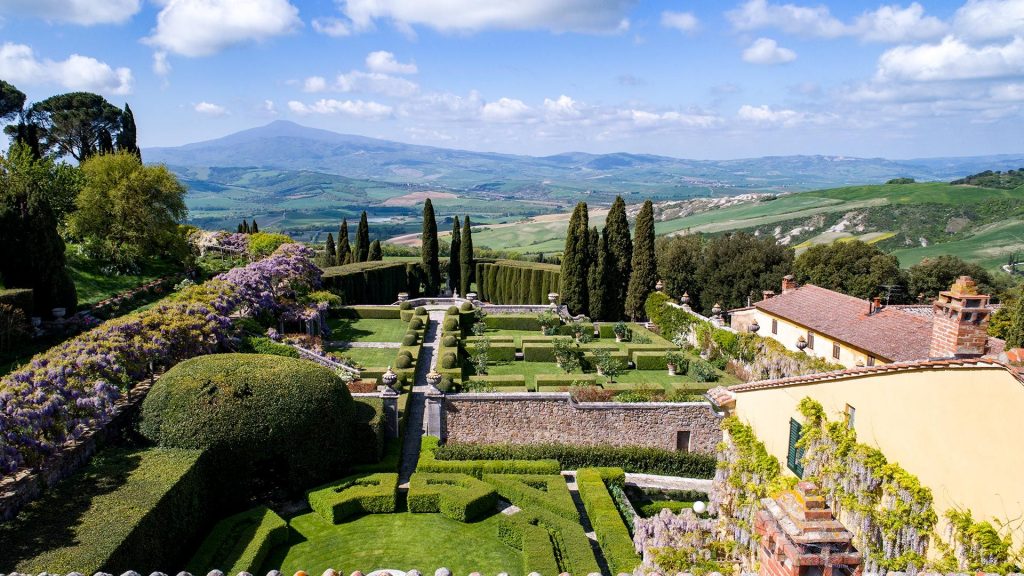
When Lysy dreamed up the idea of the festival, La Foce was struggling through a difficult period. Like the rest of society, post-war Italy had seen a migration of laborers from farms to factories, as the economic engine changed from farming to manufacturing. Lysy’s grandparents were celebrated in the region, and Iris’s books had created a curiosity about the estate. It occurred to Lysy that allowing the public inside, through a concert series, would be welcome by all. He and his mother Benedetta Origo, launched the festival in 1988.
“My grandparents valued their privacy,” said Lysy, “and in their advanced years La Foce was quite a secluded place; with a beautiful walled garden that nobody but family and close friends had access to. With time, more and more people started visiting and I believe the concerts had a lot to do with initiating that.” At the same time, his mother, Benedetta, led the charge to rebuild the farmhouses as holiday rentals, profiting from the government’s agriturismo movement to lure people to Italy for a Tuscan holiday.
The result is a mix of history, culture, scenery and landscape that would be hard to replicate.
In fact, some of the world’s top musicians cite those things as reasons to choose this festival over others.
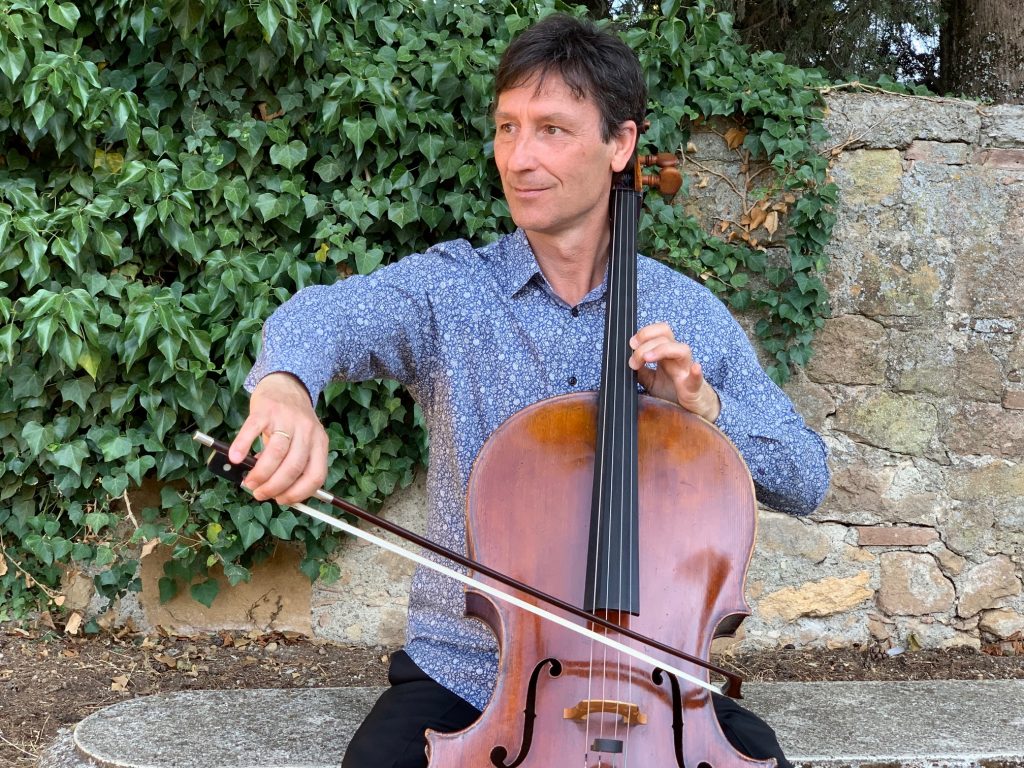
Lawrence Power is one of the world’s foremost violists, a young musician based in London, and in demand worldwide. On this night in Pienza, he joins the Calidore String Quartet in the medieval church to play Antonin Dvorak’s String Quintet No. 3 in E major. Calidore, a likeable, talented group of young musicians have drawn their own raves as well, and are praised by critics for acting as one organism. “A miracle of unified thought,” said one review. The audience is riveted. No one checks their phone or watch, and I lean forward along with them as if to better see what will happen next. When they are finished, the applause is thundering.
Jeremy Berry is Calidore’s violist; a Juillard graduate who lives in Manhattan and is attending his first Incontri in 2019. Berry spends more than half the year on the road with the quartet, and he and the other musicians experience a range of performance atmospheres, from large venues to living rooms, and from impersonal hotel chains to what he finds here at the Incontri. Here, at La Foce, the musicians stay together in the Chiarentana villa apartments. Chiarentana is a separate and charming part of the estate managed by Iris’s daughter Donata, also consisting of homes and apartments for rent.
“It has been amazing,” said Berry after concluding a concert one night. “There aren’t too many places you come to that have scenery quite like this. Actually, there are no other places. And with all of the other musicians and fans that come to the concerts, and the donors, it’s a tight-knit family, community type of feeling, which has been really pleasant. As a Manhattan-based artist, when you’re working to create this incredibly beautiful music, it’s hard to feel the fantasy and nuance you need to feel when you’re surrounded by this concrete jungle with car horns and sirens that wake you up at 6 a.m. every day. You come to a place like this, also with other artists that are so tremendous, and it’s an incredibly inspiring place from which to create.”
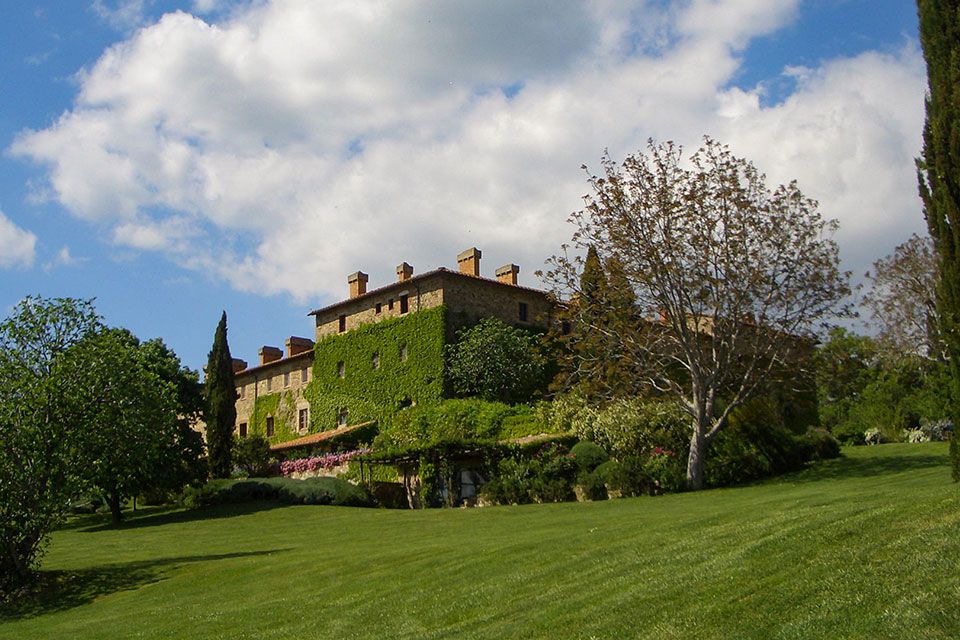
“Sometimes we play in places that are smaller, like living rooms, while most often we perform in large concert halls,” Berry said. “The fun of what we do is that it’s completely different every time and it causes us to play the music differently, in turn. Here, from the audiences, we feel an amazing appreciation. A concert really is a two-way street. I don’t know if there are subconscious cues that you pick up from the audience or what, exactly, but you really feel the energy if you’re holding the audience. Here, there has been a palpable appreciation and excitement.”
Lysy said that he worked from the start to create that atmosphere, not just by attracting top talent, but by inviting collaborative musicians who are, in a word, nice. That creates not only a good atmosphere, he said, but better music. This philosophy is also shared passionately by the current Artistic Director Alessio Bax, a distinguished, prize-winning Italian concert pianist living in New York.
“We mastermind a true matchmaking kind-of-thing with the musicians because it’s really an intricate business to achieve the right mix,” he said. “Just one person can make a whole group very unhappy. It’s not as if we’re paying them a huge fee to come here, so we try to offer them practically everything else they value, at the highest standards; the venues, the music-making, the accommodation and food, and just participating with the people that they really want to spend time with. So, it becomes for them a unique retreat, which we hope they will not want to leave! Our audiences witnesses that. They see our efforts and joy crowned in the concerts.”
Saturday night’s concert is held at the Chiesa di Sant’Andrea, a medieval church in the village of Castiglioncello del Trinoro, a town so charming that American attorney Michael Cioffi has purchased most of it to ensure its survival, remodeling the ancient homes into luxury accommodations under the name of Monteverdi. The town is perched at the top of a hill overlooking the Val d’Orcia and was down to nine inhabitants when Cioffi first came here. It is now a quiet but thriving hub of cultural activity and exceptional dining.
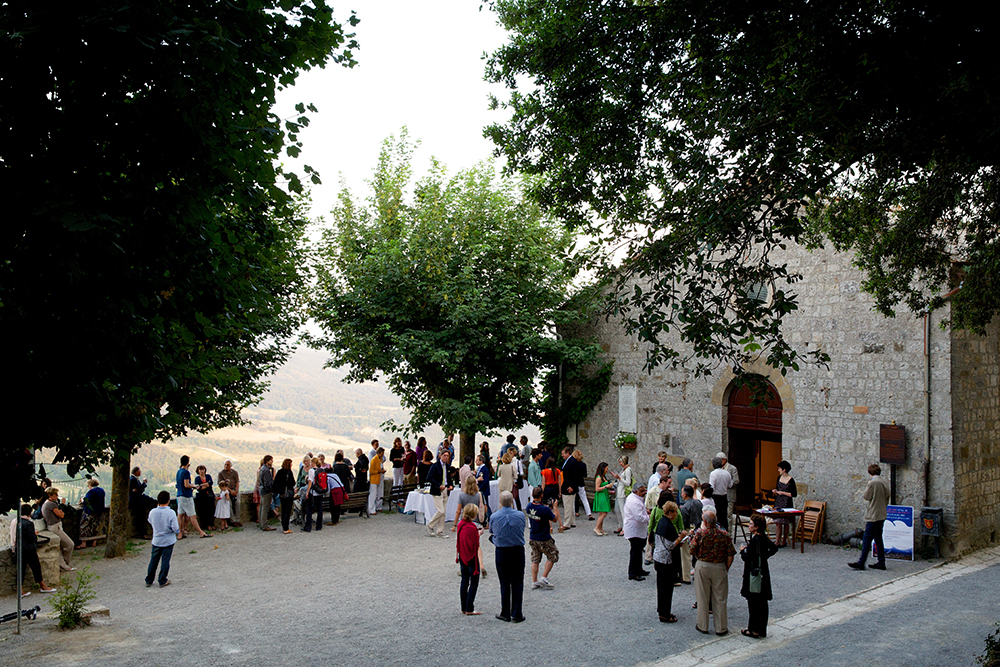
Benjamin Beilman is a 29-year-old solo violinist who has been called “monstrously talented” by the Philadelphia Inquirer, and “muscular with a glint of violence” by the New York Times. He is, above all, compelling to watch. On this night, Beilman has a prominent duo collaboration with Alessio Bax, Ferruccio Busoni’s virtuosic Violin Sonata n. 2 in E minor, op. 36a, and that muscular violence is on display. I sit in the back of the darkened space as a thunderstorm rages outside the church doors, and watch the audience watch them, and they are nothing less than stunned at their performance.
“Most of what we do in classical music resides in the 18th and 19th century and so getting back into those places where a lot of that music was composed, or during that period, and feeling like you’re connected to people who deeply, deeply want to hear it, is a very special feeling,” said Beilman, also attending his first Incontri. “You feel it both as you’re playing, and obviously after. Those people are so close to you, you can immediately tell if they’re shifting around in their chair, if they’re looking at their watch. You know when they’re sitting completely still, and you feel that electricity in the air; they’re constantly focused on you. It makes a huge difference. What we do in the practice room is very important, but ultimately, the quality of a performance is only as good as the attention that the audience provides.”
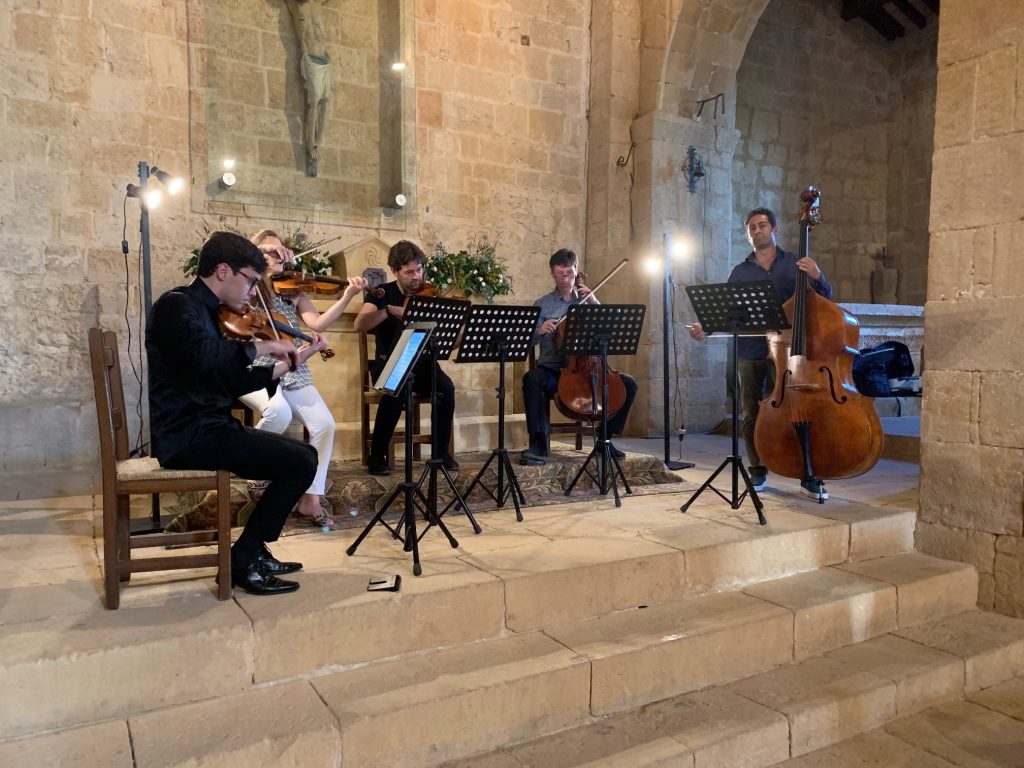
Beilman, like other in-demand musicians, has the privilege of what to choose on the summer festival circuit, and like Berry, he cites the landscape of the Val d’Orcia as one of the major draws of the Incontri. “The most immediate thing that stands out is the terrain and the surroundings,” says Beilman of his initial experience here. “The sheer natural beauty is a huge part of this festival. Summer has so many weeks and for musicians who are in relatively high demand, you can sort of have your pick of where you want to go. Being here tonight and experiencing this kind of very intimate ancient church packed with people is a very special feeling.”
“This kind of very intimate ancient church packed with people is a very special feeling.” –Benjamin Beilman
Saturday’s performance, as well as Sunday’s final one on my visit, also features solos from the world-renowned Croatian-born French horn soloist Radovan Vlatkovic. He has been to the Incontri in the past, and has formed a strong bond with Lysy and Bax. He’s a soft-spoken, interesting and worldly person with a kindly air, and as I listen to him play, I can hear the stories that his passionate embrace of the music tells. As they seem to be at the conclusion of all of the performances, the audiences are overcome, as am I.
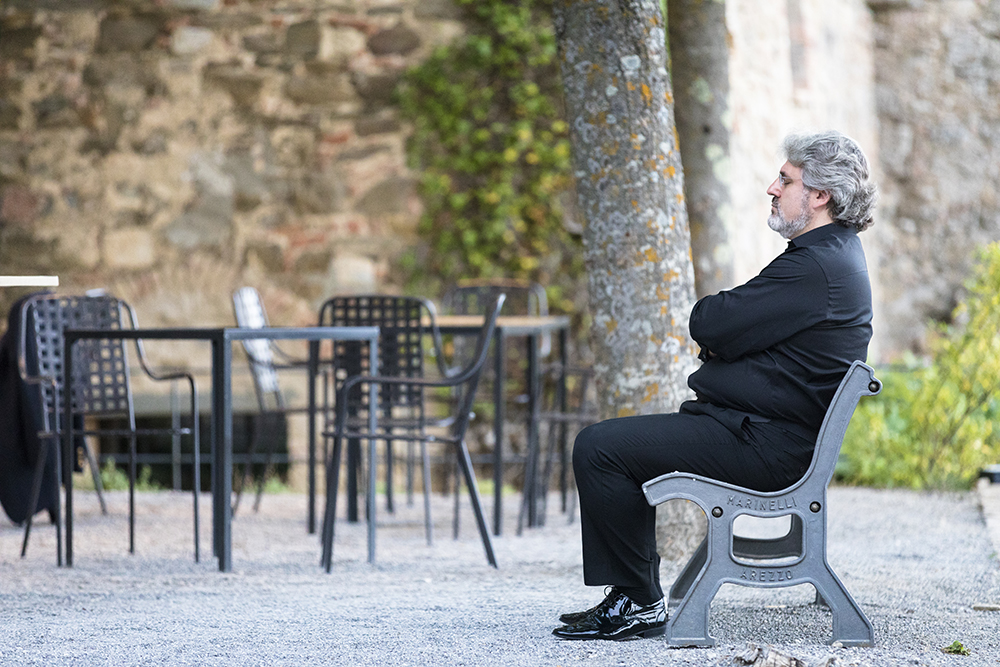
“On my first visit two years ago I visited the gardens at La Foce, and was told part of the story and also acquired books by Iris Origo,” said Vlatkovic. “We feel the sense of tradition and continuity through the work of Antonio’s family with whom he started the festival. Certainly Iris Origo’s presence is felt through her books and this unique estate which is her and her husband’s legacy.”
“As travelling musicians, there is indeed a strong sense of solidarity, bond and mutual support. At festivals we go through a short but very intense period which sometimes seems between dream and reality. The memories stay forever. And so the ITS continues to be a place for artistic encounter and inspires us to make our humble contribution for a better and more humane world.”
Vlatkovic’s words make you realize that Lysy’s apple hasn’t fallen far from his grandmother’s tree.
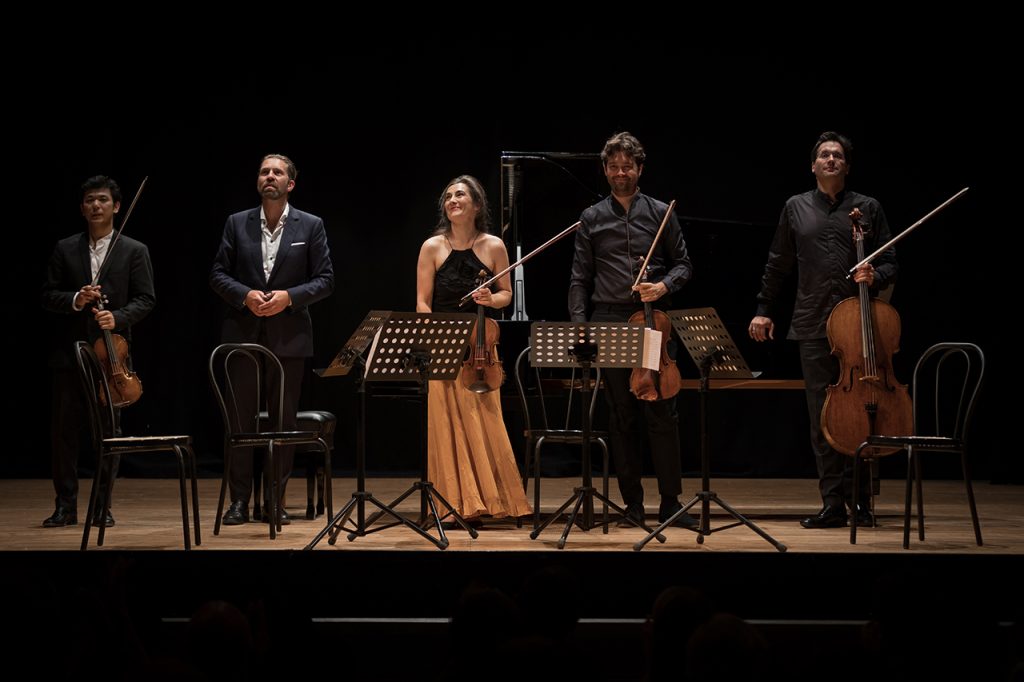
It’s the last night of the concert, and Vlatkovic has finished performing. He stands behind the back row of the last aisle of the audience in the old granaio at La Foce, where tonight’s outdoor concert has been moved due to inclement weather. The change in venue means that every last space is taken up by the audience. Beilman, Annabelle Meare, Lysy, Power and the Calidore string quartet are closing the concert with George Enescu’s Octet for strings in C, op. 7, and it’s jaw dropping. As the audience delivers a loud and thundering ovation, Vlatkovic stands with the rest of them, cheering. He catches my eye, raising one eyebrow as he shakes his head and smiles to acknowledge the incredulity we both feel.
I may not know a lot about music. But I know I that what I have just seen is something extraordinary.
For more information on the festival or how to attend in 2020, visit www.itslafoce.org.


